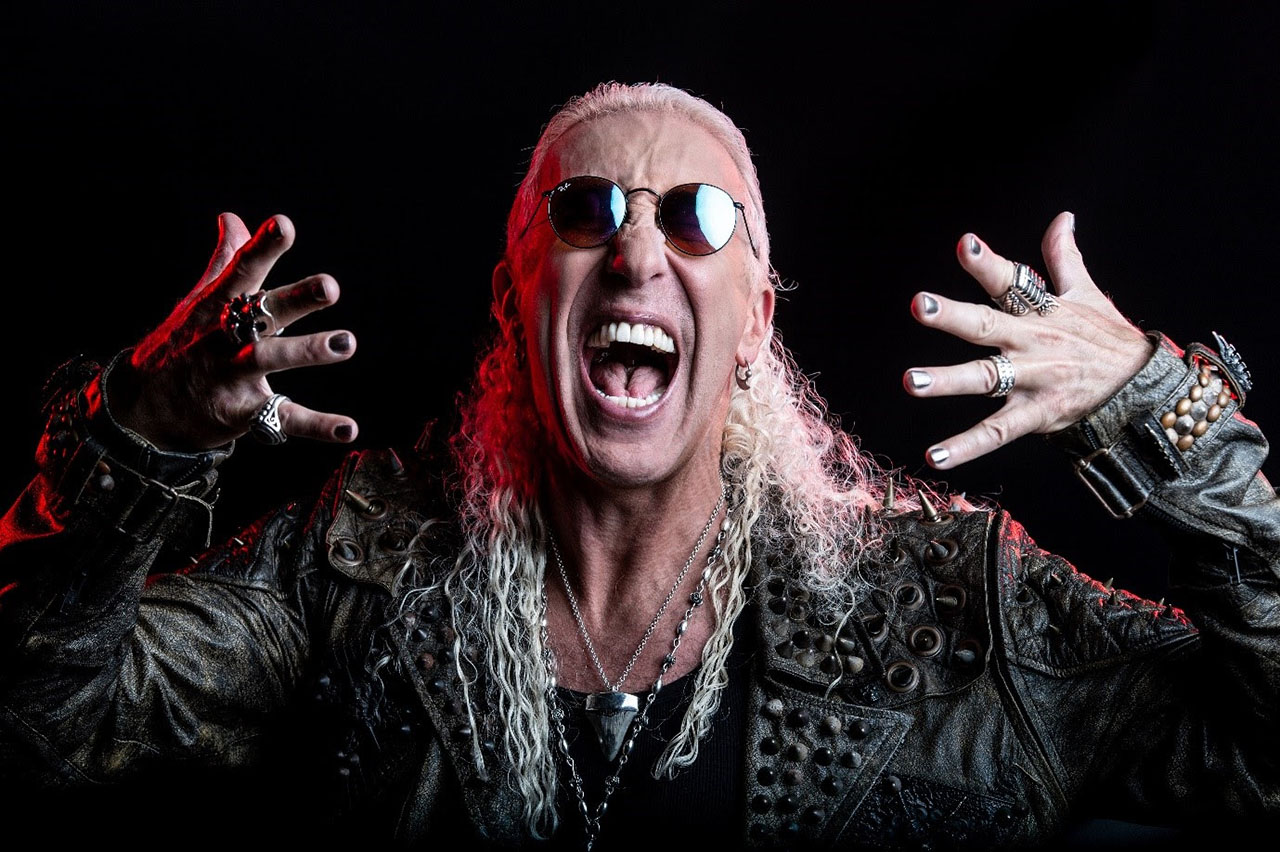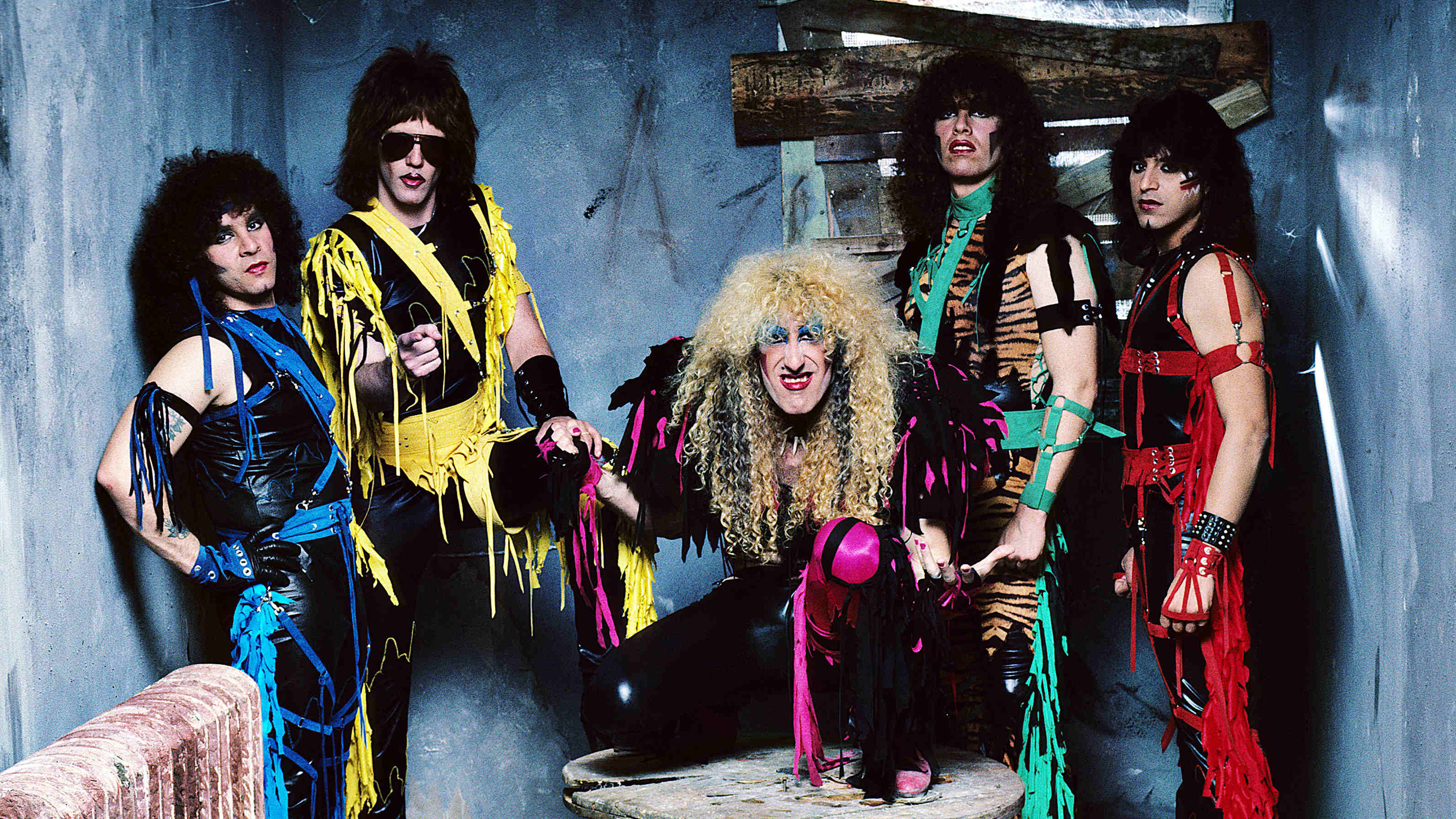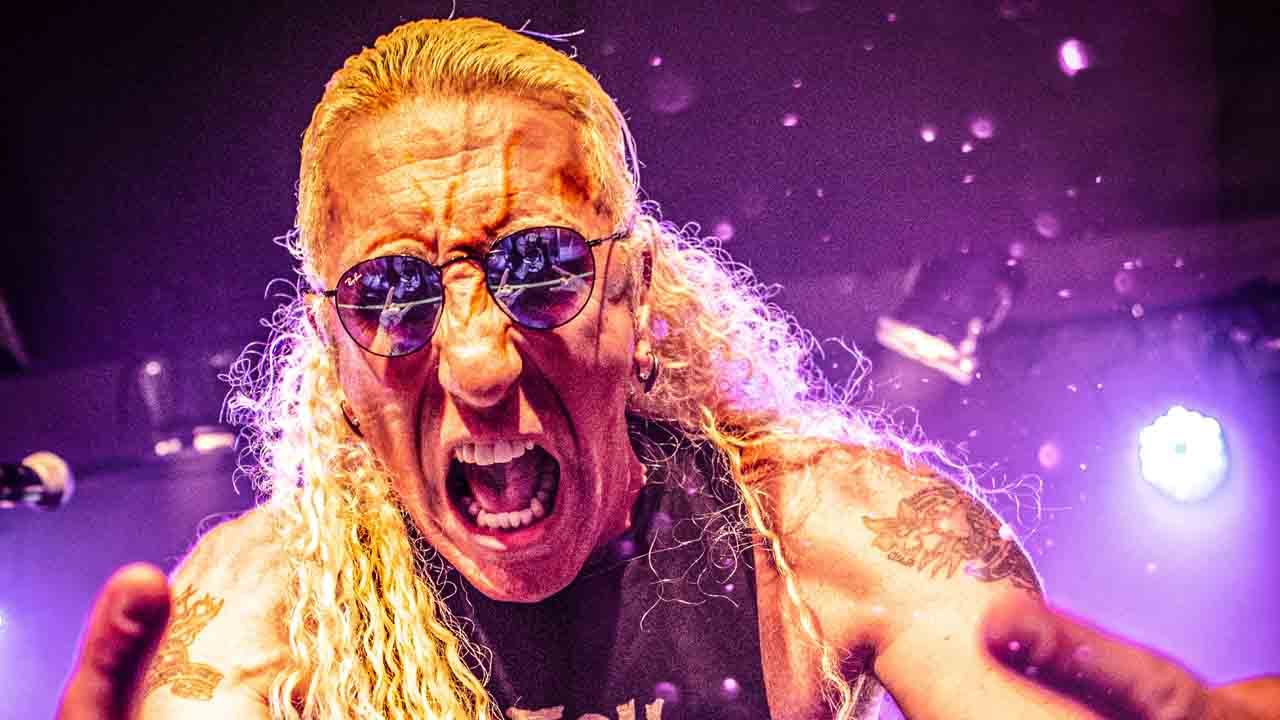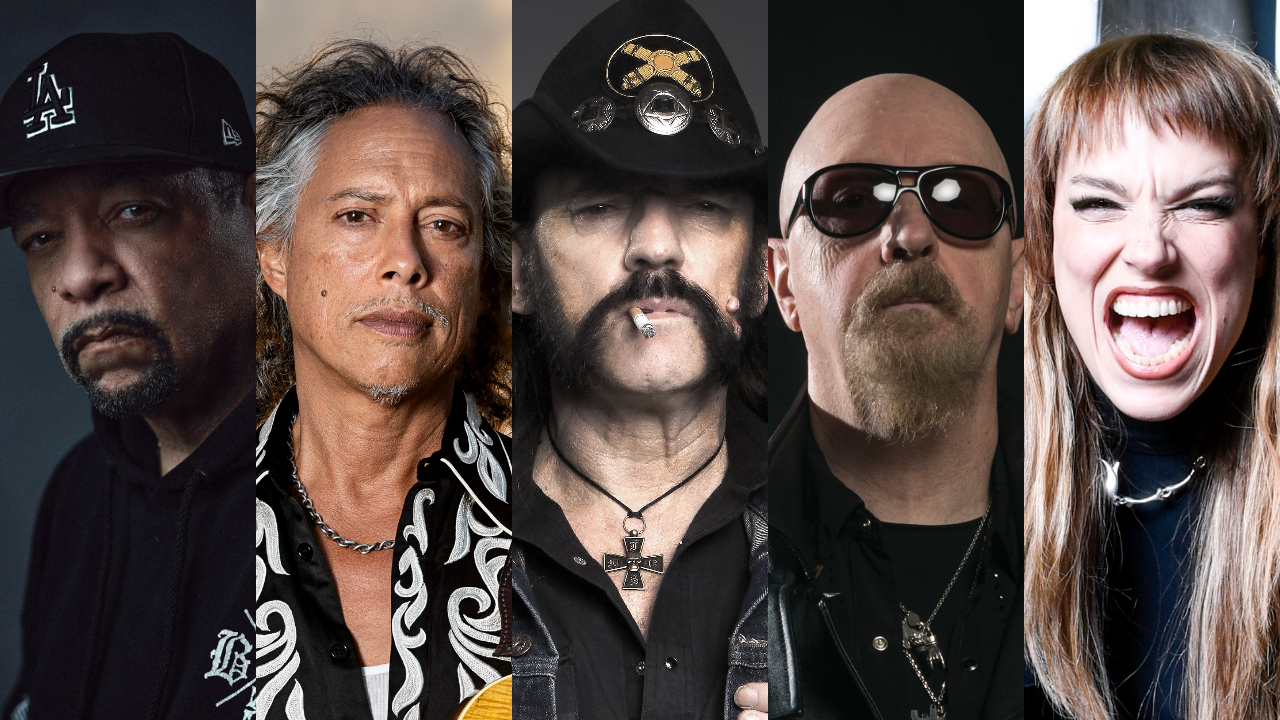The pandemic hasn’t stopped Dee Snider, but age might
“I’ll do it as long as I can. But come on, man. How much time is left?” says the former Twisted Sister man

Like every other musician on the planet, Dee Snider’s summer plans have been wiped out by the COVID-19 pandemic. He was supposed to be playing a handful of shows with all-star rock’n’roll supergroup Kings Of Chaos in July before the bottom fell out of the gig scene.
“The live music industry is screwed for the time being,” says the former Twisted Sister frontman (and unofficial AC/DC spokesman) of the current situation. “It’s hopefully not screwed forever, but this is certainly going to leave a mark. Everything that’s happening is just horribly damaging, especially for young artists who don’t have the legacy or the licencing or branding that a band like Twisted Sister has.”
One thing that hasn’t been affected by the pandemic is the release of For The Love Of Metal Live, the 65-year-old’s new live album and accompanying DVD. Recorded on the tour that accompanied 2018’s studio album, it mixes up Twisted Sister classics with songs from his solo career, adding a cover of AC/DC’s Highway To Hell and a brand new song, Prove Me Wrong for good measure. With Snider holed up in his adopted home in Belize, now seemed like as a good a time as any to look back over a career that’s had its ups and downs – and forwards to just how much longer he can keep doing this.

- On a budget? Here are the best budget turntables
- The best bluetooth speakers you can buy right now
- Take it to the streets in style with Converse’s big summer sale
- Best headphones for music: supercharge your listening
You’re at an age when you could be retiring. Why do you feel the urge to keep on going out there and doing this?
It’s the challenge. A challenge to myself and a challenge from other people. [Hatebreed frontman] Jamey Jasta challenged me to make For The Love Of Metal, so I did it. And it was great, at the ripe old age of 63, 64, to find my place again. And I’ll do it as long as I can. But come on, man. How much time is left?
Is that what it feels like? That time’s running out?
There’s a lot of going, ‘How long do I do this? How long can I keep doing this?' I want to keep doing this and the mind is willing, but the body is weak. I hate to tell people this, but every time I throw the horns my shoulder hurts. And I throw the horns a lot. I'm not stopping, but I'm going, 'Ow, ow, ow' every time I do it. That's not supposed to be the way it is.
Sign up below to get the latest from Metal Hammer, plus exclusive special offers, direct to your inbox!
I've already had one shoulder surgery, one knee surgery, one throat surgery. What am I gonna be? The bionic man out there onstage? I don't want to be one of these 'legacy' artists who used to be really active onstage and they're going through the motions. I didn’t do that on For The Love Of Metal Live, and I don't want to ever do that. I don't ever want to go up there and have people say, 'Man, you should have seen him in the old days, he was really good.' That to me would crush me. Especially now with fucking COVID. I'm just playing it by ear, saying, What's next.

Who was your big inspiration as a live performer when you started out?
Nobody, that's the answer. The reason is that I had very strict parents and I didn't go to my first concert until I was, like, 16. I didn't really start to going to concerts properly until I was 17 or 18. I never saw Alice Cooper, one of my biggest influences, until I toured with him with Twisted Sister.
My inspiration was from photographs. I'd see photographs of Alice Cooper and think, 'If Alice is doing this, then he must have been doing this to get there.” When I saw Alice I found out we do nothing the same. I sort of created my own style by imagining what my heroes must have done to rock the way the pictures showed.
Do bands these days put in the hard yards like you did in Twisted Sister, or do they expect it to be handed to them?
Very few bands put in the kind of time we did with Twisted, and they do expect it to be handed to them. But I expected it to be handed to me too. I had dinner with [Quiet Riot singer] Kevin DuBrow back in the 1980s. Quiet Riot had been around for a while too, and he said to me, “Mötley Crüe and Ratt, they've been together a couple of years and they get successful, and we had to put in all that work. Don't you hate that?” And I looked at him. And I said, “Kevin, I wouldn't wish what we went through on my worst enemy.”
It beat the joy of rock’n’roll out of me. It was not supposed to be that way. You were supposed to put together a band and make a record. It wasn't supposed to be eight, ten years of slogging it out. There's a certain pride in that, but I would trade it for instant fame in a hot second.
I hate to tell people this, but every time I throw the horns my shoulder hurts. And I throw the horns a lot
Dee Snider
What kept you going back then, when you're banging your head against a brick wall?
As hard as it is for people to believe, by the late 70s Twisted was playing for 1000 to 4000 kids a night, five nights a week. We'd get every rejection letter from a suit in a tower in New York who was hanging out at (Big Apple punk mecca) CBGBs signing bands who played to 50 people. We'd go out in front of a couple of thousand kids losing their shit, lining up around the block to see an unsigned band. Those kids, they knew the truth. Those suits, they didn't know shit.
What’s been the toughest time in your career? The point where it all went really wrong?
That was 1989, ’90, ’91. The end of hair metal, the start of grunge. I got the call: “We're not doing that any more.” I was, like, “What do you mean that? We don't do that. We don't sing like you, we don't perform like you, we don't write like you, we don't look like you.”
But that was it, over. I was married, I had three kids, and I was broke. Yeah, I'd made millions and I spent it like a rock star. And that was without drugs and alcohol.
How did you get through? Was it just you knuckling down to dig yourself out of a hole?
I saw an article in a business magazine on personal branding, and they cited me as a person who branded himself. I was laughing reading the article, cos I did nothing of the sort. It was pure desperation. I said “Yes” to any and every opportunity I could. And that even meant everything from answering phones at a desk job for somebody to managing a recording studio for a little while. Then I started working for a toy company, working on toy concepts. And then I got into voiceover, and then I started my radio career, then TV, movies, everything started kicking in. But it was no plan, it was just saying “yes” to anything that would give me a buck to put food on the table for my kids. It was desperate.
Wait, you answered phones? Did you say, ‘Hi, you’ve reached Dee Snider’?
Oh god, it was awful. This was 1991, ’92. People would walk in and go, “Aren’t you…” And I would lie. I would say, “No I'm not.” And they’d go, “Wow, it’s amazing, you look just like him.” The fact is that never in a million years would people think that Dee Snider would be sitting answering a phone. So they’d believe me that I wasn’t me.
That must have been pretty humiliating.
Yeah. Another job I did was flyering cars. I remember flyering cars in a parking lot at a catering hall in the rain, and the security coming after me and running trying to get away. I didn’t want them to recognise me, putting flyers on cars in the rain: “Aren’t you Dee Snider? What are you doing out here putting flyers on cars in the rain?” I was desperate, but I had three kids. You do what you gotta do.
When did things start picking up for you?
It really started to turn in 1996. There was a few years of desperation, and then I started doing voice overs. And voiceovers pay tremendously, so all of a sudden I start getting money coming in. And then I got a radio show, The House Of Hair, which has actually been on now for 22-plus years. And my radio started kicking in. So by the late 90s, I'm making big money doing radio and voiceover work. And now I'm back. But it was tough.

What was the worst voiceover gig you did? Did you find yourself doing adverts for chocolate raisins or anything like that?
I can't think of any voiceover gig being the worst, because it pays so well. I remember talking to a seven-figure voiceover guy, and I would say, “Dude, what a great gig this is! We get paid so much money for doing nothing!” And he points up at the heavens and goes, ‘Sssh. He might hear you.’
Twisted Sister split in the 80s cos the records stopped selling and people stopped caring about you. When the band came back in the 00s, people loved you again. What had changed?
It's a 20-year cycle. I've done the math. In the 80s, when we were coming up, there was this whole 60s thing going. Kids were wearing Doors and Beatles jackets. When I was in high school in the 70s, it was all about the 50s. I actually chose between joining a 50s band and joining Twisted Sister. It was, like, “Do you wanna sing with The Dukes and do doo-wop, or do you wanna sing with Twisted Sister?”
But yeah, 20 years. And 80s rock music, as a legacy music, seems to have more staying power. Younger people seem to be enamoured with the attitude, the spirit, the colours, the fun, the rebellion of that time. That's something that none of the other generations really captured.
I made millions and I spent it like a rock star. And that was without drugs and alcohol.
Dee Snider
I think in a lot of ways, I burned out a lot by the time we broke. Twisted had already played over 2000 shows before we put a record out. We had made five demo tapes, I'd written five albums of material that never saw the light of day before Twisted Sister got a deal, and then I continued to write more. With [post-Twisted Sister project] Desperado, Bernie Tormé and I wrote over a hundred songs for that album.
There’s a new studio track on the live album, Prove Me Wrong. The lyrics go, ‘They had every chance to prove me wrong.' Who are 'they’?
They know who they are. All those people who have been telling me my whole fucking life I couldn't do it. And it never fucking ends. I just wrote my first novel. I've been writing screenplays for a long time, and I decided to embrace writing longform. So I wrote a few chapters and I brought it to a literary agent, and I said, “Can you give me some input?” And he wrote back and said, “Why don't you leave the writing to the writers.” And you know what I said? “Thanks, cos that's all I fucking needed to make me finish this and to make it great.“ It's at the publishers now, know it will be published. The book’s fucking strong. It's an outsiders’ book from the 70s. It’s based on actual gang activity on Long Island, where I grew up. Actual events, but fictionalised.
But even going back to my earliest days, my music career, it's always been: “You can't, you can't, you can't.” So that song is just a statement for a half century of people telling me that I fucking can't. I can. Prove me wrong.
You haven’t made a whole lot of albums compared to some of the people who started out at the same time as you. Why not?
Not that I can’t write. I keep writing, I have a TV show, a kids’ show I co-created, I'm writing songs for that show. I can keep writing, but the motivation to just want to do isn’t so strong.But also you get spoiled when you have a hit record. I'm not about just writing for my own head, I'm not about making music that nobody listens to. I dealt with a lot of that for years - the stuff that I put out just seemed to fall on deaf ears. Oddly, For The Love Of Metal struck a chord and people really embraced it. All of a sudden I hit my stride at the ripe old age of 60-whatever. I reinvented myself.
That's the long answer. The short answer is: I just got tired of having stuff fall on deaf ears. Why am I bothering?
What’s the first Dee Snider gig going to be like when things get back to normal?
Well, I was supposed to be directing my first feature film, My Enemy’s Enemy, in May but it was postponed. So the first Dee Snider gig, is hopefully going to be that.
After that, I don’t know. we'll see what happens. How are people going to feel when gigs are back on? Will they even come? Will they be standing shoulder to shoulder in the audience, or are they going to be wearing masks? As fan and as a performer, rock’n’roll is about that one-ness - those moments where a massive audience and the band and the song connect and we’re all one. If that's not there, I don’t want it any more. That's not rock'n'roll. It better get back out there, cos I don’t think I want to do it if it doesn't. I'm like an old brat who's behaving like a child: ‘I want my rock'n'roll!’”
Dave Everley has been writing about and occasionally humming along to music since the early 90s. During that time, he has been Deputy Editor on Kerrang! and Classic Rock, Associate Editor on Q magazine and staff writer/tea boy on Raw, not necessarily in that order. He has written for Metal Hammer, Louder, Prog, the Observer, Select, Mojo, the Evening Standard and the totally legendary Ultrakill. He is still waiting for Billy Gibbons to send him a bottle of hot sauce he was promised several years ago.

